|
In the last week, I've heard three different people claim that comparing yourself to others is somehow bad -- one even did it in a comment on my recent post, 3 Scientifically Proven Ways to STOP Caring What Others Think About You and Live a Happier Life.
But here's the thing. Comparing yourself to others, done correctly, is probably the best way to learn, improve, and build up your own confidence. Here's why: 1. According to psychology, downward social comparison is the number one best way to feel better about yourself. It's counterintuitive, but it's true! As I wrote in Psychology Reveals Four Ways to Feel Better About Yourself: Another way to feel better about yourself is through downward social comparison -- or comparing yourself to people who are worse off than you. For example, "I played horribly today! I only scored four points in my best game. But at least I scored more than that guy in the blue shirt -- I've never seen him make more than one basket in a game."
It sounds kind of snarky and unhealthy. And it kind of is. I don't think this is a very appealing way to look at life -- but, actually, research suggests that downward social comparison is (and I quote), "The number one best way to feel better about yourself."
For example, a 1985 a study determined whether different women with breast cancer were more likely to upward or downward social compare as a coping strategy. For example: Upward: Melinda has the same kind of breast cancer as I do, and hers is in remission. That means mine could go into remission, too. Downward: Kate has the same kind of breast cancer as I do -- and she doesn't even have a husband to support her through this. I'm glad my husband is so supportive. Intuitively, I would have guessed that the upward social comparers would fare better than the downward ones. But Wood et al. found the opposite. Women who downward social compared were less likely to show signs of depression... and actually had better health outcomes. Like, they were less likely to be dead. Why? Because upward and downward social comparisons play different roles. Upward social comparison provides hope and opportunities for social modeling. Downward social comparison helps us avoid self-pity. In a weird way, feeling better than other people is empowering. And. Feeling better than others has a physiological effect on our brain, which directly affects our bodies and our emotions about our situation. Feeling powerful (as in, better than someone else) is better than feeling powerless. Read more > Self-pity is the worst. Well, self-pity and self-handicapping. Accordiding to Gary Vaynerchuk, author of Crush It: Why NOW Is the Time to Cash in On Your Passion, as well as Jeffrey Pfeffer, author of Power: Why Some People Have it and Some People Don't (both of which I enjoyed tremendously), the number one reason most people don't succeed is because they're afraid to get out of their own way. If downward social comparison will give you the courage to get out of your own way --
Then you should do it! Sure, it would be wonderful if everyone were fearless (setting aside the evolutionary implications). But the reality is, we're not. We will never not have fear. And, remember. Bravery isn't the absence of fear. It's the willingness to overcome that fear. If downward social comparison helps with that, freaking do it! 2. Upward social comparison is one of the best ways to improve. Want to make sure you never improve, learn, innovate, or grow? Then avoid comparing yourself to others. Otherwise, social comparison -- in particular, upward social comparison -- is the fastest way to get where you want to be. First, let's revisit Psychology Reveals Four Ways to Feel Better About Yourself, to make sure we're all on the same page about what "upward social comparison" entails: Humans have an unquenchable drive to gain accurate self-evaluations. We want to be able to compare our abilities and accomplishments to those of others. (That's part of the reason social media is so addictive -- Likes and Follows allow us to quantify something that was previously only qualifiable.) Upward social comparison is when we compare ourselves to people who are better off than we are. This can be a source of misery, when done incorrectly (when it makes us feel jealous or inadequate)... But it can also be a source of inspiration when done correctly. It can be a way for us to find role models and develop strategies for personal growth and improvement. Let's look at a few examples: Allen Iverson is an amazing basketball player. And he is exactly the same height as me! He's a lot better than I am at basketball -- but if I work really hard, I can improve an be more like him. (Though I can't say I admire his attitude about practice.) Or, perhaps, PepsiCo CEO Indra Nooyi is such a badass, awesome woman! I love her speaking style -- and, if I practice, I can speak with the same confidence and authority as she does. Technically, these examples may not be ideal, since, according to social comparison theory, our tendency to compare ourselves to others decreases as our abilities or opinions become more divergent. Maybe a better example is, "Tony is such a great player -- he has such great court vision, and, like, all his threes go in! And he's ten years older than I am! If I work hard and keep playing, I can be like Tony when I'm old!" We all know that role models -- from NBA superstars to teachers and camp counselors -- are important for children. But don't underestimate how important they can be for you, as an adult. Read more > Tony is a great example of using social comparison to find inspiration. No, I'm not looking forward to getting older. I'm not looking forward to injuries that take longer to heal, and knees that aren't what they used to be. But! It's pretty wild to see how Tony and some of the older guys have continued honing their intellectual and mental games over time. That gives me confidence that parts of my game will continue improving, no matter how stiff my knees get. But upward social comparison hasn't just given me hope and inspiration -- it's also changed my game! See, when I played in high school, there was this girl on the Andover team named Mimi Hernandez. She was tall and athletic, like me. And I hated playing against her. It just... made me mad. She made me mad. And one day I realized... If I start doing the things she does, I'll make my opponents mad. Which means I'll be a more effective defender. So I did it. I compared myself to Mimi, I figured out what we were doing differently, and I learned from it. And now, in the words of one former Laker, I am a "white, female Dennis Rodman." (He's got two championship rings, so I'll take the compliment. And the comparison.) 3. It's impossible not to compare yourself to others. Okay, it's possible -- but only if you're, like, deprived of sensory information. If you're running, whether in a race or for fun, you can't not notice when you pass people. You can't not notice when people pass you. When you're presenting ideas in a meeting, it's impossible not to notice whose ideas were amazing, and whose ideas sucked. I suppose there are times when you can't directly compare yourself to others -- like when you're rowing:
But even then! A big part of winning a race is having the best people in your boat. That's why they invented ergs, 2k tests, and seat racing.
I guess there's, like, yoga. But even then. At the high levels, are people really not comparing themselves to others? They're really not setting goals for themselves based on the abilities, accomplishments and innovations of others? I'd find that hard to believe. As I mentioned above, people have always had an unquenchable drive to know how they compare to others. You can't control or change that. What you can control is how you think about it. Are you using downward social comparison to overcome fears and insecurities, or are you self-handicapping? Are you using upward social comparison to set goals and find inspiration, or are you just getting your hate on? You can't not compare yourself to others. But you can use cognitive reframing and other strategies to make sure your comparisons are healthy and productive. 4. If you don't compare yourself to people who are doing what you want to be doing, then you're missing out on opportunities to learn from them. I'm not going to sugarcoat it: I've got a pretty sweet setup. I run Paved With Verbs, a small college counseling and life coaching business, and I've been working on The Happy Talent for years. I don't describe Paved With Verbs as "earning a living," because it doesn't feel like that's what I'm doing. It feels like I'm getting paid to have an impact doing something I'm passionate about. And! I get to travel between two and four months per year. I just got back from a three-month Southeast Asia trip, and it was wildly amazing!
I get two main responses to my lifestyle, as well as the photos I post on Facebook:
1) "You're so lucky! I love following your adventures online!" 2) "Hey, Eva, I have a question. I've been wanting to set up my own small business, and I know you've done that, so I was wondering if we could set up a call or get coffee sometime so we could talk about how you got to where you are today." There's also a third response don't get -- not to my face. But given the way so many people bitch about their Facebook "friends" who post travel photos, couple photos, and baby photos, I'd suspect there's a small contingent of people who are more like:
Et cetera.
I suppose that's one way to use cognitive reframing to feel better about yourself. But how does it help you? Do you think feeling snarky and resentful is better than feeling joy? Do you think that unfollowing someone whose life you envy will help your life be more like theirs? I mean, don't get me wrong -- I definitely agree with this:
Perspective matters.
But instead of getting jealous, smug or resentful, I think it's better to find ways to self-improve. For example, by setting up a meeting with the person. Or, perhaps, by following their example. A bunch of nasty "fauxminists" had a heyday after the New York Times published a piece on Mike Lanza, founder and author of Playborhood: Turn Your Neighborhood a Place for Play. Rather than take five minutes to learn about how Mike has managed to fill his yard and home with so many opportunities for play and fun, they completely discredited everything he said because, supposedly, he is "rich." But, as I wrote in Playborhood Your Neighborhood: The Best Gift You Will EVER Give Your Child, In a recent interview, Mike mentioned some people think you can only create a Playborhood-like community if you have money. "Not true," he told me. "You see this furniture? We bought it all used. See how it doesn't have any legs? That's because one of the legs broke a few years ago. And rather than buy new furniture... I just took off the other three legs and set it on the floor. Nice cars and expensive furniture aren't important to us, because how do they help our kids? How do they help our kids learn, grow and be happy? The neighborhood is magical. I think free play is the greatest gift I can give my children. So that's our priority." Rather than learn from his example. Rather than inquire about the tips and strategies he would share. Rather than do a few minutes of research, or -- heaven forbid! -- read his book before criticizing it. They decided that just because they hadn't managed to do something, it couldn't be done. Just because they hadn't figured out how to prioritize play in their children's lives, anyone who has must have had an unfair advantage. And this sucks -- not just for the fauxminists, but also for their kids, who will never have the playful, interconnected neighborhood Mike created in his town. I don't have kids, yet, but I've already begun comparing my future hypothetical neighborhood with Mike's, and I can't wait to begin building a magic childhood for future hypothetical children, whom I may or may not even want. Because it's stupid not to compare your life to the life you want. *** the Tl;Dr here is that: a) you can't not compare yourself to others, and b) if you're not comparing yourself to others, you're missing out on opportunities for personal, professional, athletic, and intellectual growth. Fear is normal. Social comparisons are unavoidable. Instead of pretending it's "bad" or feeling guilty about it, own it! You'll be crushing it (whatever your "it" is) in no time. Want to know more? Check out:
25 Comments
Nicola
4/6/2017 09:44:02 pm
fuck yes. I discovered your blog a few weeks ago and I think it's totally great.
Reply
Zack Z
4/10/2017 12:46:08 pm
You're talking about Iverson? Allen Iverson? How am I supposed to feel comparing myself to Allen Iverson?
Reply
4/12/2017 11:43:13 am
Maybe he makes his teammates jealous and insecure, and that's why he stopped going to practice :P
Reply
Zeph
4/22/2017 09:27:48 pm
"You can't NOT compare yourself to others" seems kind of superficial; it's just saying that achieving absolutely zero comparisons is unobtainable - like "You can't completely avoid every worrying". True but trivial,and says nothing about whether worrying more or less is useful.
Reply
4/28/2017 11:19:19 am
I think that's a great idea -- it would be great to find some personality/trait correlation, in order to advise people which "comparison strategy" will work best for them. Also, regarding the "proving your critics wrong" point -- I've found that spite can be an extremely powerful motivator.
Reply
4/7/2024 06:33:49 am
Your work always surprises me in the best way.
Reply
4/7/2024 06:39:59 am
What do you think motivates this character?
Reply
4/7/2024 06:47:43 am
I just can’t get this part out of my head. Why do you think that is?
Reply
4/7/2024 06:53:50 am
You absolutely nailed the ending. It was so satisfying.
Reply
4/7/2024 06:55:46 am
I love this question you asked in the interview. That was so thoughtful.
Reply
4/7/2024 07:06:50 am
Your writing always makes me want to become a writer, too.
Reply
4/7/2024 07:11:10 am
This is so well-researched and thorough. I’m impressed.
Reply
Leave a Reply. |
About the Author

Eva is a content specialist with a passion for play, travel... and a little bit of girl power. Read more >
Want to support The Happy Talent? CLICK HERE!
Or Find me on Patreon!
What's Popular on The Happy Talent:
Trending in Dating and Relationships:
What's Popular in Science: Playfulness and Leisure Skills:
Popular in Psychology and Social Skills:
Categories
All
|
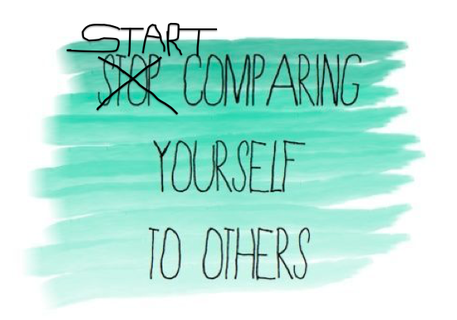
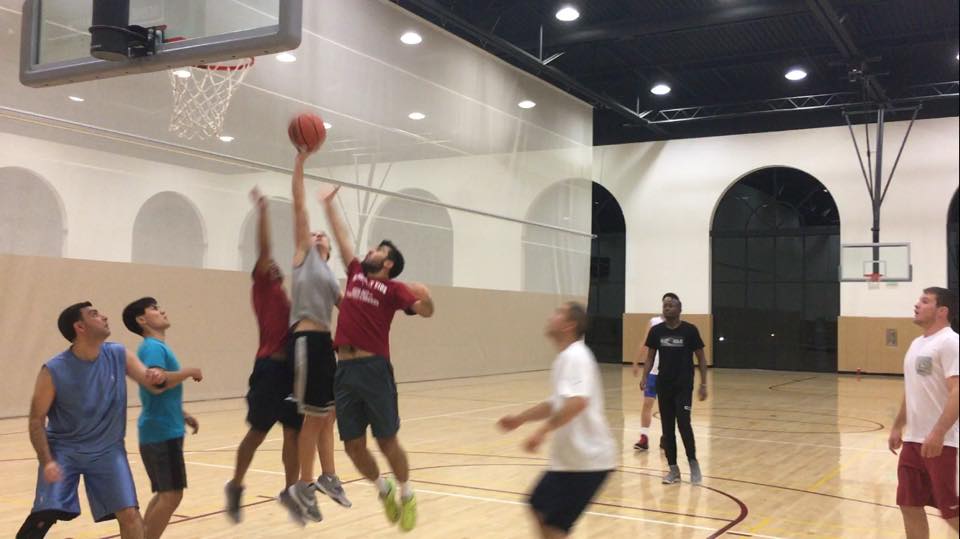


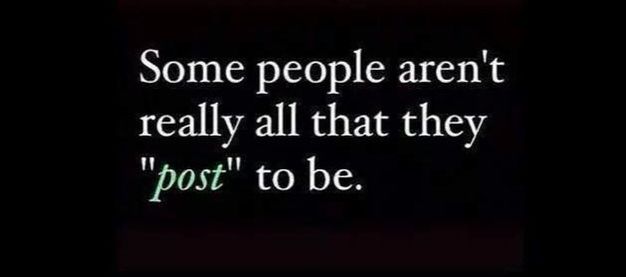
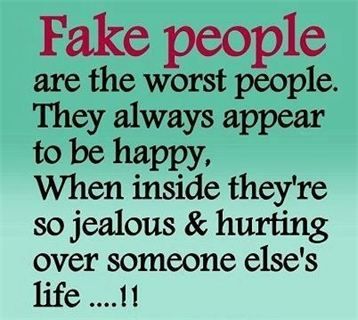
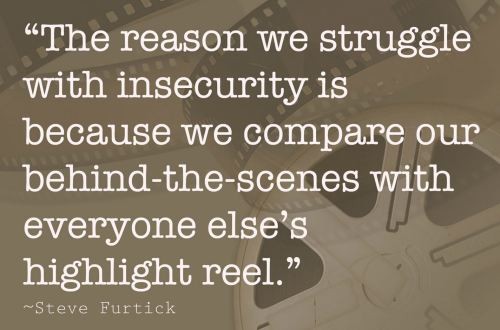

























 RSS Feed
RSS Feed